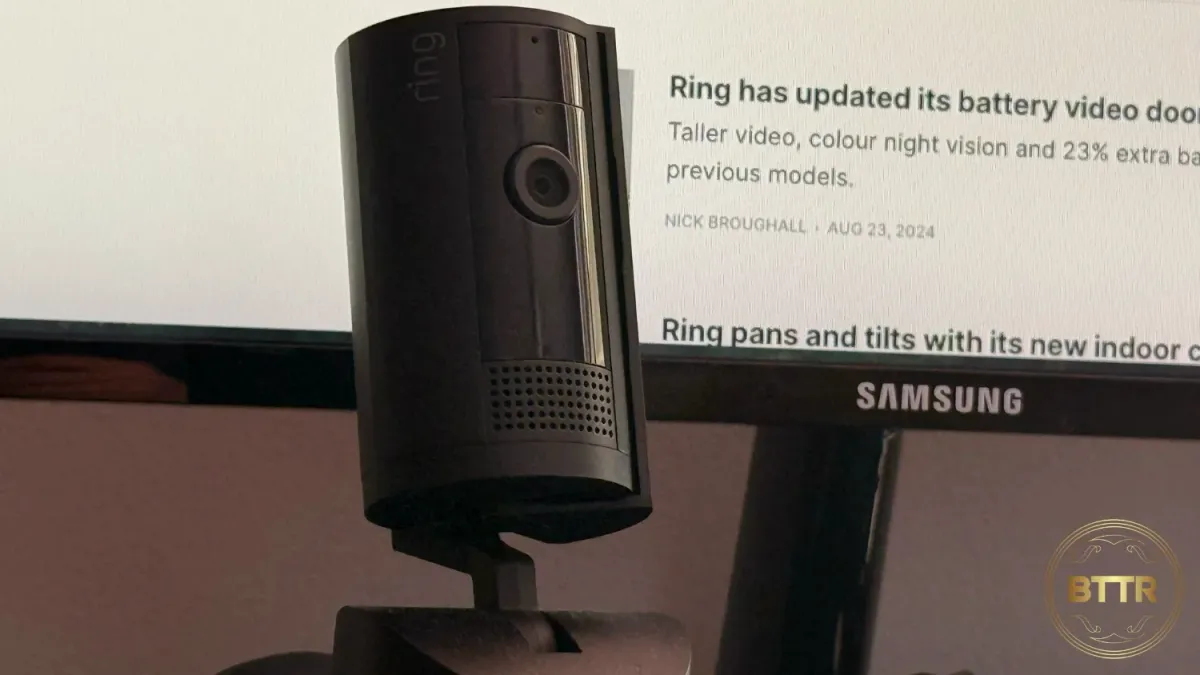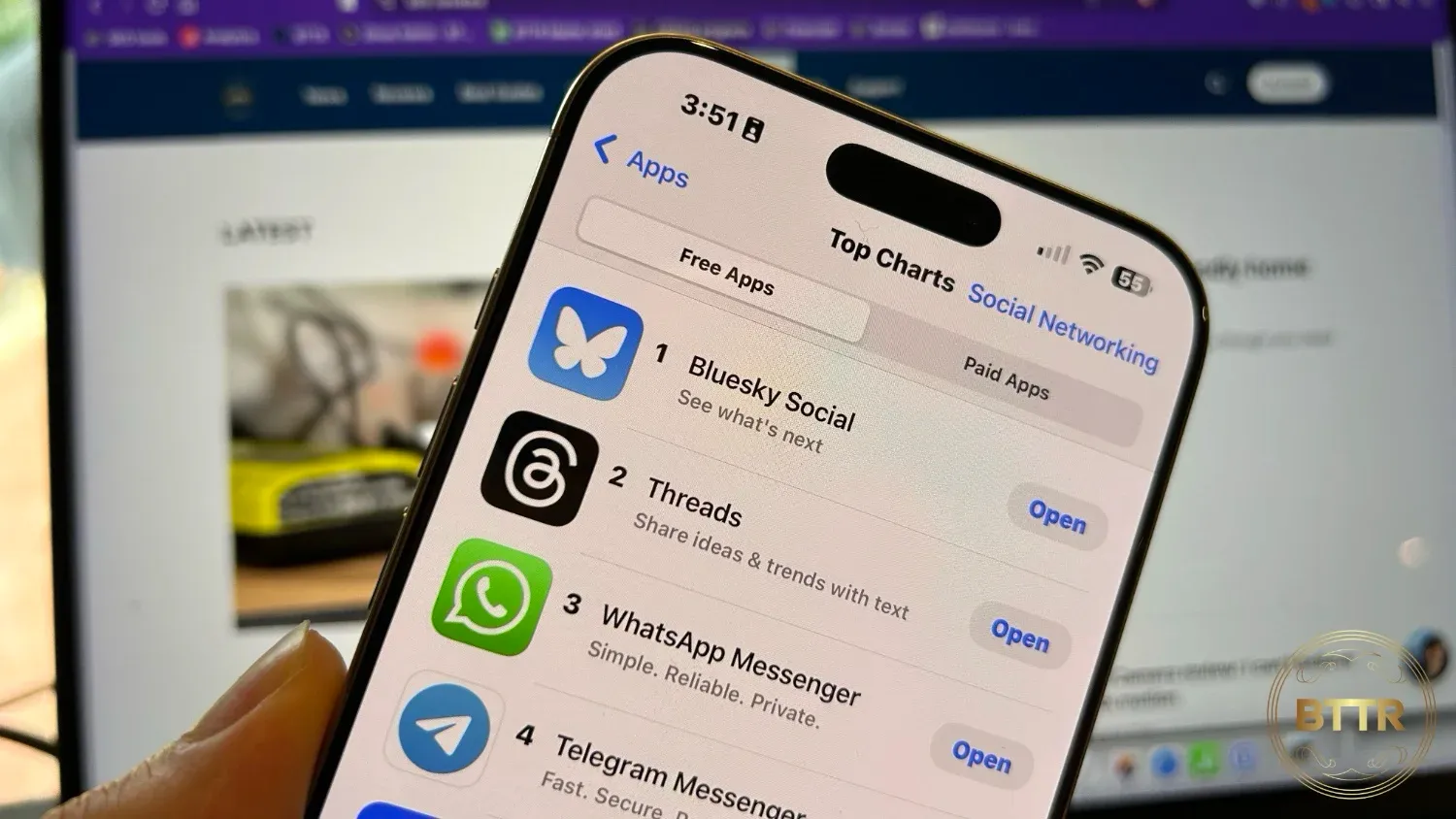There was a lot going on in the tech world this week, not least of which was the mass exodus of people from Twitter (sorry, Elon, it'll never be X to me) for BlueSky.
it's official — 1,000,000 people have joined Bluesky in just the last day!!! welcome and thank you for being here 🥳
— Bluesky (@bsky.app) 2024-11-15T00:53:46.785Z
Well, it's not just BlueSky. Threads is also signing people up at scale, with Instagram and Threads boss Adam Mosseri celebrating adding more than 15 million users in November alone.

The third player vying for your Twitter attention is Mastodon, which was the first big winner when people started leaving post-Musk. Though according to Mastodon Analytics, the growth now is much more subdued, with total users hovering around the 9 million mark.
I won't spend much time going into the reason for the exodus from Twitter, other than to say it's been an aggressively spiteful corner of the Internet for years, even longer than Musk has been the owner. But it's been worse since he took over, without question.
What I do want to look at is what each platform offers, and why I think BlueSky is a better offering right now, compared to Threads and Mastodon.
Let's start with the tech behind the platforms
All three of these Twitter alternatives promise a level of openness not found in the likes of Twitter or Facebook. Rather than closed networks designed to lock you in as a user forever, they use open protocols to enable interconnectivity and sharing across platforms – to a degree.
Both Mastodon and Threads use the ActivityPub protocol, (which is also used by services like Micro.Blog), and is designed to foster interconnectivity between platforms. In the case of Mastodon, that's why you can join a range of servers, and communicate with people on different servers.
The ActivityPub protocol is developed and maintained by the world wide web consortium (W3C), so it has the backing of the industry.
Threads' use of ActivityPub is a bit more limited, letting Threads users share their posts with other ActivityPub servers, but not the other way around. You can't follow a Mastodon user in Threads (yet). Given Meta's closed approach to social platforms previously, I wouldn't hold your breath for that to happen anytime soon, either.
BlueSky, meanwhile, runs on a something known as the AT Protocol. It is, like ActivityPub, an open source protocol, but at this stage it's exclusively been developed and created by BlueSky itself.
Over the course of this year, BlueSky has opened up the AT Protocol somewhat, so that you can now host your BlueSky data on your own (or a third party) server.
There is some capability for interaction between the two protocols – the aforementioned ActivityPub-based Micro.Blog lets you automatically share posts to BlueSky, and track replies from both Mastodon and BlueSky on your blog posts.
But currently there's no ability to follow across these protocols, seeing Mastodon or Threads posts in your BlueSky feed, or vice versa.
Feed quality is king
The biggest difference, in terms of the platforms isn't the technology it's running on – it's the quality of the feed you see.
Obviously a big part of that comes down to the people in your network, but there are also algorithmic considerations.
While you can follow people across Mastodon servers, by default your feed is limited to the server you joined, which makes it harder to find interesting accounts to follow.
Threads, meanwhile, is dominated by its algorithm. Remember that Threads is an offshoot of Instagram, which has spent years mastering the art of keeping people engaged.
That means, at least for me, the "For You" timeline is filled with engagement bait, or posts designed to generate a reaction. It's often negative. It's not the type of content I want to see, and while there are definitely things I can do to improve that algorithmic view, the overall quality of the conversation seems less open anyway.
BlueSky, meanwhile, is definitely having a moment. The algorithmic "Discover" feed is a bit hit and miss – at the moment most of the posts I see are people talking about how much better it is than Twitter (which is really boring).
But there are other cool features, like user created Starter Packs of people to follow, built around a theme.
It's also super easy to block and moderate negative or abusive content in a way that the other platforms can't, which is a good thing.
Privacy and security
Over the past week or so, as numbers have skyrocketed, I've found BlueSky to be the most engaging platform to be on. But it's not perfect.
Neither ActivityPub or AT Protocol support end to end encryption currently, so don't send any sensitive information in a direct message, whatever you do. But more than that, you need to understand that effectively means everything you publish should be considered "Public".
Where your personal information sits is a different matter entirely though. With Threads, it's obviously all controlled by Meta, and that includes how your data is used for advertising. As Meta pushes harder to use AI in everything, this could become more of an issue for more privacy-minded users.
On Mastodon, everything sits with the owner of your instance or host. Given the fractured nature of Mastodon's hosting setup, you probably need to do a lot more research to discover how your data is handled.
There's space for multiple services, but the best will be where your friends are
Over the past week, it really feels like BlueSky has stepped things up a notch. Not just in the number of users, but the scale and quality of the conversations happening.
It definitely has early Twitter vibes (back when it was fun to use). I personally find there's still way too much talk about Twitter, but I think that's because of the migration.
I'm still posting to Threads, and my personal Micro Blog is connected to Mastodon through ActivityPub. But I think BlueSky is the most interesting of the platforms right now.
In any case, if you've made the migration, make sure you connect over on BlueSky or feel free to connect on Threads if that's where you spend your time.
This week in tech
On BTTR this week, I really shifted focus away from news coverage to deeper pieces. Like my analysis of 264 different SIM-only prepaid and postpaid mobile plans. The full analysis is behind a proper paywall though, but you get a copy of the sheet I used for my analysis so you can do your own deep dive.


This week's reviews
I ran the numbers this week and so far in 2024 I have written and published 83 product reviews on BTTR. No wonder I'm tired!
And by sheer coincidence, I have another 17 products sitting here around my home to review. With less than seven weeks left of the year, I'm confident I'll hit the 100.
Ring Pan & Tilt camera

Blink Mini 2

Thanks for reading
The rest of this newsletter is for paid subscribers. It includes a collection of some of the key tech news stories of the week, mostly from my fellow Australian tech publications, but also some of the bigger stories from overseas.
Plus, I lament some more about AI's stupidity and preview some of next week's reviews.
As always, I'd love to hear your thoughts on this week's newsletter, or even some input on what you'd like to see in next week's roundup.
Until next week
Nick @ BTTR










